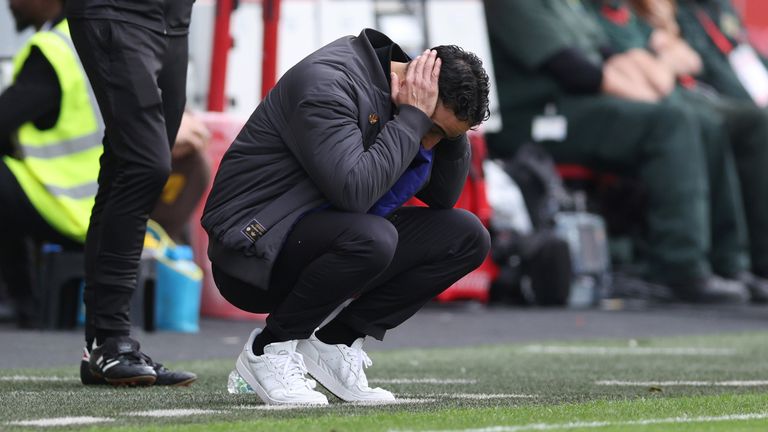Manchester United’s struggles under Ruben Amorim continued with a lacklustre 3-1 defeat against Brentford, leaving fans and pundits questioning the manager’s rigid tactical approach. A match that could have sparked momentum instead highlighted the recurring problems of a system-first philosophy that is draining life and energy from the team.
Bruno Fernandes’ missed penalty summed up the afternoon. After a long VAR delay and a mid-penalty substitution that stretched his nerves, the United captain saw his effort well saved by Caoimhín Kelleher. Rather than sparking a comeback, the miss underlined how disconnected United’s play has become. Fernandes, often the team’s creative heartbeat, now finds himself repurposed in deeper roles, stripped of his spontaneity, and looking increasingly ineffective.
Amorim’s obsession with preserving his tactical structure has created a side that appears robotic and confused. Players start matches as though buffering, overly focused on patterns rather than reacting instinctively to the opposition. The result is a team drained of emotional energy, unable to impose themselves on games, and frequently punished by more aggressive opponents.
Defensive frailties remain glaring. Asking Harry Maguire to operate in a high line was again exposed as Brentford’s pace and direct play carved United apart. Igor Thiago’s opener showcased Brentford’s ruthlessness, while further goals from Benjamin Sesko and a dominant attacking display left Amorim’s system looking fragile and naïve.
The wingbacks offered little going forward and were often caught out of position. Patrick Dorgu, energetic but ineffective, resembled a runner near the action rather than a decisive contributor. By the time Fernandes fluffed his chance to turn the tide, the game was already slipping away.
Amorim’s post-match comments blaming refereeing decisions, Brentford’s aggression, and even his own players did little to inspire confidence. Nearly a year into his tenure, the manager has yet to string together back-to-back league victories. Instead, he has molded a once-culturally troubled side into one that now looks specifically flawed in his own image.
For most clubs, such performances would signal the end of the road. At Manchester United, however, Amorim remains in place, his so-called “Ruben-ball” set to return unchanged next week. Supporters are left wondering how long the cycle of lifeless football can continue before decisive action is taken.

